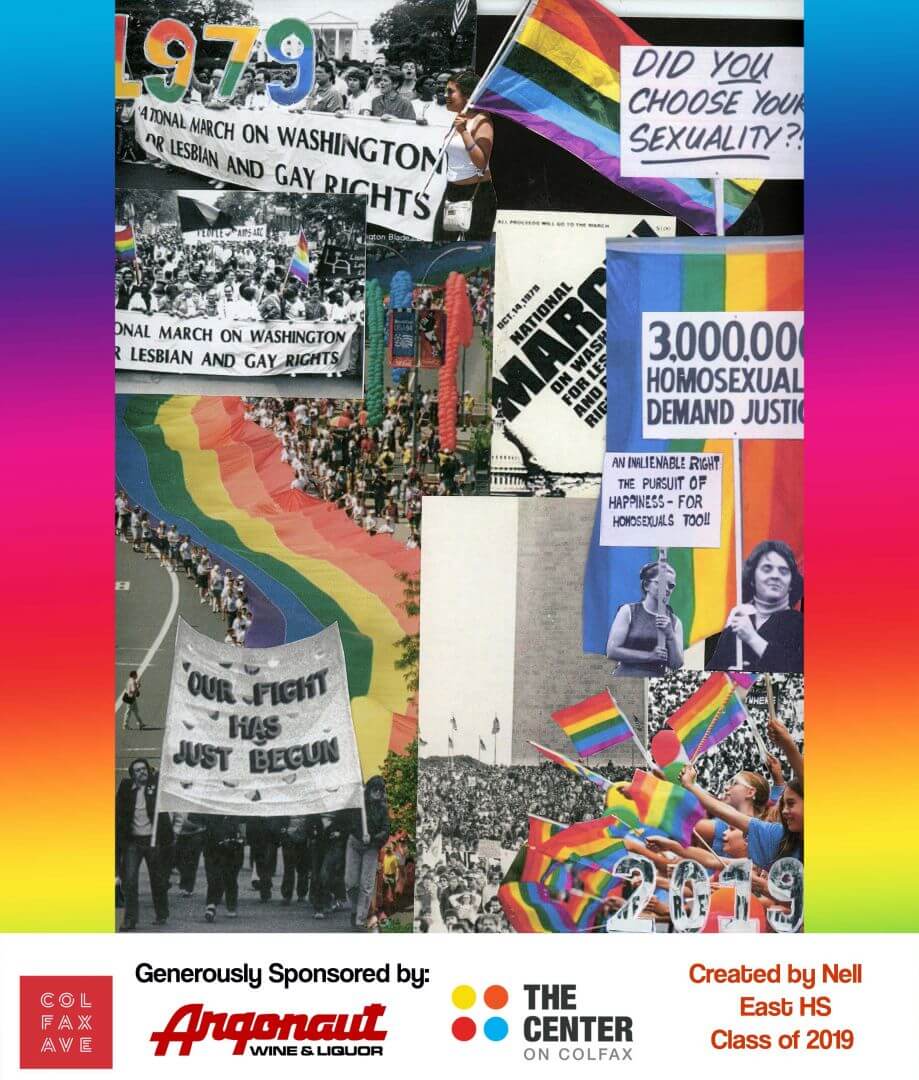1979 March on Washington for Gay and Lesbian Rights
Colfax between Pearl & Washington
Created By: Nell
Sponsored By: Argonaut
Community building and equality—those were the driving forces behind the first March on Washington for Gay & Lesbian Rights in 1979. The idea of the march and strategies were borrowed from the African American Civil Rights Movement of the 1950s and 60s. In fact, the march’s origins were entirely anchored in grassroots organizing. The leadership of National Gay Task Force worried that such a protest would “attract publicity and right-wing reaction” and withheld their endorsement until a month before the event. Due to these fears, the mainstream movement almost entirely rejected the event. Some organizations did support the event including the Lambda Legal Defense Fund, the National Coalition of Black Lesbians and Gays, and the National Organization for Women.
The first march occurred on October 14, 1979 and mobilized around one-hundred-thousand people. The estimates ranged from as low as twenty-five-thousand by the Parks Service to as high as two-hundred-and-fifty-thousand by the participants. Organizers drafted five demands:
- Pass a comprehensive lesbian/gay rights bill in Congress
- Issue a presidential executive order banning discrimination based on sexual orientation in the federal government, the military, and federally contracted private employment
- Repeal all anti-lesbian/gay laws
- End discrimination in lesbian-mother and gay-father custody cases
- Protect lesbian and gay youth from any laws which are used to discriminate, oppress, and/or harass them in their homes, schools, jobs, and social environments.
The march ended in a rally between the Washington Monument and Reflecting Pool. Speakers at the 1979 rally included Harry Britt, Charlotte Bunch, Allen Ginsberg and Peter Orlovsky, Flo Kennedy, Morris Knight, Audre Lorde, Leonard Matlovich, Kate Millett, Troy Perry, Eleanor Smeal, Adele Starr, and Congressman Ted Weiss. It was also broadcast live on many NPR radio affiliates throughout the U.S. There would be three subsequent marches, in 1987, 1993, and 2000.

